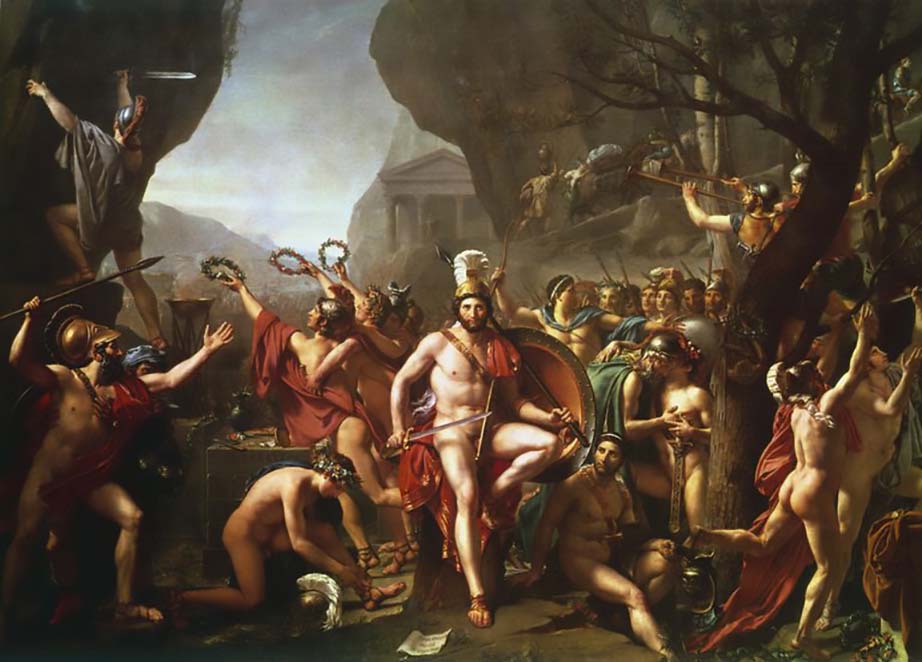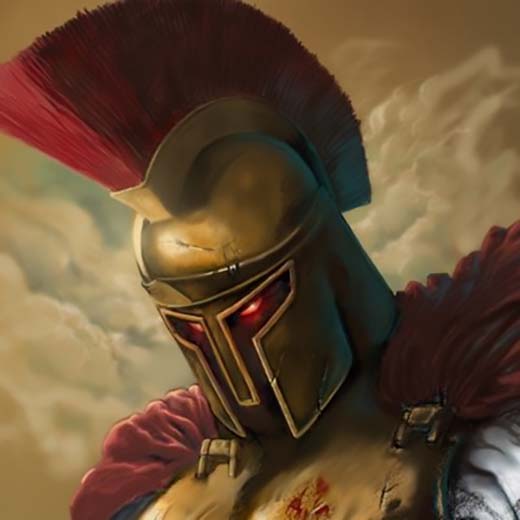Lacedaemon
Lacedaemon (Ancient Greek: Λακεδαίμων) was a mythical king of Laconia (later on, Sparta became its Capital) and son of the Pleaid Taygete and Zeus in Classical Greek mythology.
Sparta is a city of Laconia in the Peloponessus. Laconia is a part of a vaster region, Lacedaemon, a name which has also been used to denote the city of Sparta. To the north of Laconia are Argolis and Arcadia, and to the west Messenia.
Keep in mind that Lacedaemon was the 4 th of the mythical kings of Sparta and Laconia.
The "lineup" goes like this:
1 st Lelex (he was an Autochthonous, aka: a "son of the soil" or a "son of Gaia")
2 nd Myles (son of Lelex)
3 rd Eurotas (son of Myles)
4 th Lacedaemon (son-in-law of Eurotas)
5 th Amyclas (son of Lacedaemon)
etc. etc. etc.
Later on, Lacedaemon would grow up into a handsome young man, and eventually, Lacedaemon would arrive in the kingdom of Laconia, which at the time was ruled by Eurotas. Eurotas had two beautiful daughters, and so taken by Lacedaemon was Eurotas, that he promptly wed one of these daughters, Sparta, to Lacedaemon.
The third legendary king, Eurotas had no sons, and so the kingdom of Laconia was passed to his son-in-law Lacedaemon. Lacedaemon would rename the kingdom after himself, whilst he also built a new city, which he called Sparta after his wife. Thereafter, the names of Lacedaemon and Sparta, as well as Lacedaemonians and Spartans, were used interchangeably.
The wife of Lacedaemon would give birth to two children, a son called Amyclas, and a daughter called Eurydice. Lacedaemon would be succeeded as king of Lacedamon/Laconia, by his son, Amyclas.

Sources
Pausanias (1918). "III.1.2". Description of Greece. with an English Translation by W.H.S. Jones, Litt.D., and H.A. Ormerod, M.A., in 4 Volumes. Cambridge, Massachusetts; London. At the Perseus Project.
Grimal, Pierre (1996). "s.v. "Eurydice" (2)". The Dictionary of Classical Mythology. Wiley-Blackwell. p. 157.
Pausanias (1918). "III.1.2".
Pseudo-Plutarch (1874). "XVII Eurotas". De Fluviis.













